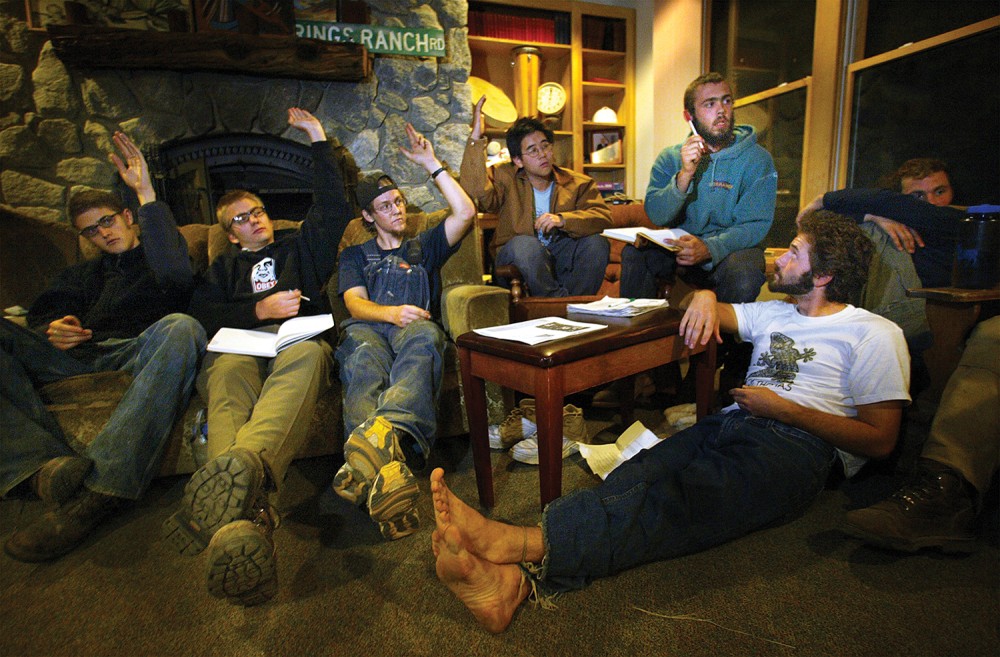A dustpan, a desert, and a search for moral order
My theological education began at Deep Springs College, a two-year work school in California.

Students at Deep Springs College vote on issues of governance in 2003. Since 1917 the unconventional school has enrolled about 26 students at a time, making it among the most selective programs in the US. (Spencer Weiner / Los Angeles Times, via Getty)
Before I even saw the caption, I knew who I was looking at in the photograph of a member of Congress cleaning up debris in the Capitol rotunda late on the night of January 6, 2021. He was dutifully wearing a mask, and his unassertive hairline and paternal bearing were not distinguishable from many of his colleagues. But I was certain it was Andy Kim, then a representative from New Jersey. Kim is now a senator and was previously a national security staffer in the Obama White House, a State Department adviser in Afghanistan, and a Rhodes and Truman Scholar. His instinctive embrace of cleanup work, however, marked him as an alumnus of Deep Springs College in California.
When I arrived at Deep Springs as a student, a few years before Kim, there were 26 of us in two classes. All of us, until 2018, were male, and our surroundings looked every minute of their 80 years. Decades of unaccompanied boys had transformed the main building into something akin to a late-period Keith Richards; it stood, but you didn’t quite know how. The bathrooms had received a Reagan-era update, and before that—rumor had it, in the 1940s—the desks had all been nailed into the walls. Smoking, then a common vice, was centralized on the front porch around a multitiered vessel colloquially known as the “pagoda of sin” which, when it was knocked over and cracked in half, turned out to have accumulated multicolored sedimentary layers of old cigarettes, like the rock of the surrounding mountains.
The grit of the desert intruded at every strained seam and aching joint of the place. Cleaning up was a constant necessity. One day, those of us tasked with washing the pots and dishes decided to deep clean the kitchen. We made an event of it, getting enthusiastic help off and on from the rest of the student body. We were at it for 12 hours, pulling every table and appliance away from the wall, scouring every surface, degreasing everything we could reach. Three of us were left at the end, late in the evening, and as we put everything back and looked upon our handiwork, one classmate said, “It just doesn’t look that clean.” It was the sort of truth you can never forgive someone for speaking aloud.




